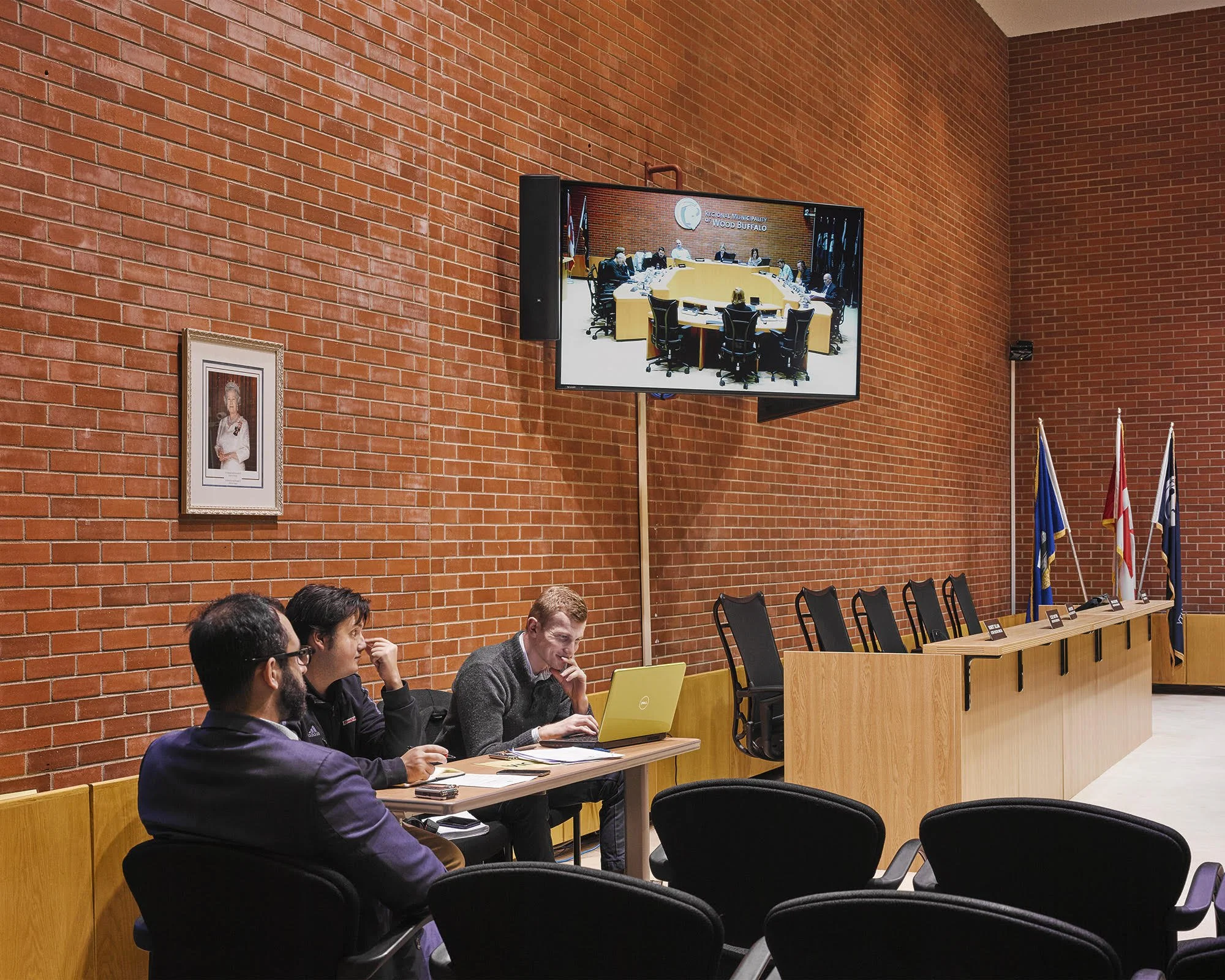As a group operating in Britain, we feel it necessary to respond to how the Climate Crisis is discussed in the news because this is how a large portion of the public are able to interact with Climate Change discussions. Roger Harrabin, a BBC environment analyst, published an article 6 days ago titled : COP26: UK 'nowhere near' meeting targets agreed at Glasgow climate summit.
According to this article, “The Climate Change Committee (CCC) says that, at current rates, the UK will be contributing to a disastrous temperature rise of 2.7C by 2100.” To combat this problem, Harrabin has the audacity to explain that “It maintains that the government must nudge people towards greener lifestyles, and must tackle emissions from farming more aggressively.” To place responsibility on the British individual to make lifestyle changes is, on the one hand, expected and useful, but on the other hand, ignorant and classist.
Inventors of New Values, 2016 © Alan McFetridge
Chris Williams, author of ‘Ecology and Society’, writes that current responses to the climate crisis show that “the gap between ends and means is so absurd as to be laughable”. He continues “much of the environmental movement in the North [sic] is consumed by arguing for ordinary people to make sacrifices in order to save the planet.” Such an argument “speaks to and for a very narrow segment of middle-class opinion formers” as opposed to addressing “socio-ecological justice for the world over”. What this means is that climate change cannot be dealt with by individual ethical choices alone and the reality is that this sense of responsibility on the individual is ignorant to the circumstances in which many people need to survive, let alone thrive.
Refusing to purchase bottled water (especially those made of plastic), buying local, vegan diets, installing solar panels, electric cars, second-hand clothing - none of this will be enough. Yet we are expected to make these changes and criticise others for not doing the same which seems to me only another example of how the elite get us to fight between ourselves. Vegans telling non-vegans to be vegan; cyclists promoting cycling. It’s always good to live a greener lifestyle; to bear in mind our contribution to global warming. But what would be more effective would be to challenge leaders who continue to fund environmentally destructive projects, who make it difficult for citizens to live sustainably because it is unaffordable for many. To reach these targets we can remind large corporations, governments, and billionaires of their responsibility.
A Riddle is it Still this Dream, 2016 © Alan McFetridge
Therefore I pose an alternative responsibility to the reader instead. Not everyone can afford to live sustainably, it’s fashionable, expensive and a trend of the white, middle-class. We need not argue with our peers and friends over how green our lifestyles are and we need to stop falling into a trap laid by the privileged because the Government can, however, work harder to make a greener country. We can repurpose this energy we have for calling out our friends when they aren’t acting green enough and target it elsewhere - toward those in charge. They can afford it, they have the power to change it, and they can, in the process, improve the average quality of lives of the British public and beyond.
Warmest regards,
Antoinette Johnson (any pronouns)

